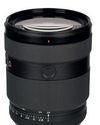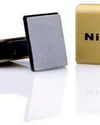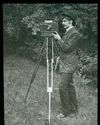
If you’ve been following the photographic industry news recently, you’ll surely have heard of the new Sony Alpha A9 III – we published our First Look in last week’s issue. It’s a super-fast camera for sports and action photographers that boasts the world’s first ‘global shutter’ sensor. You can’t move for articles declaring this to be a ‘game-changer’, or some other such hyperbole. But is this really the case? For most of us, no, it’s just a very clever (but very expensive) piece of technology. To help understand why this is, we need to go back to the origins of the A9 line.
When Sony introduced the original Alpha A9 in 2017, it rapidly became clear that it was no ordinary camera. Technically, it was the first full-frame mirrorless model to include a stacked CMOS sensor, with an additional memory layer enabling highspeed data readout. In practice, this meant it could shoot full-resolution 24MP raw files silently at 20 frames per second, while tracking focus on a subject anywhere in the frame, and with no viewfinder blackout. It really was a game-changer, making Canon and Nikon’s top-end pro-spec sports DSLRs obsolete at a stroke.
When the A9 II appeared a couple of years later, it concentrated on adding professional workflow productivity and connectivity features, rather than any major spec updates. Then in early 2021, the firm introduced the even higher-spec flagship Alpha 1, which offered 30fps shooting in 50MP raw, and 8K video. At that point, it looked as though the A9 line may have run its course.
Denne historien er fra November 28, 2023-utgaven av Amateur Photographer.
Start din 7-dagers gratis prøveperiode på Magzter GOLD for å få tilgang til tusenvis av utvalgte premiumhistorier og 9000+ magasiner og aviser.
Allerede abonnent ? Logg på
Denne historien er fra November 28, 2023-utgaven av Amateur Photographer.
Start din 7-dagers gratis prøveperiode på Magzter GOLD for å få tilgang til tusenvis av utvalgte premiumhistorier og 9000+ magasiner og aviser.
Allerede abonnent? Logg på

Calling The Shots: A Queer History of Photography
Offering an unprecedented view of photographic history through a queer lens, this is a wonderful and powerful book, says

Large-aperture standard zoom, too
SONY has also revealed a new premium standard zoom, the FE 28-70mm F2 GM.

Super-fast, high-res Sony Alpha Ai II
SONY has announced its new professional full-frame flagship camera, the Alpha A1 II.

39 awesome accessories
Our round-up of the best accessories we've used and reviewed this year, along with some old favourites. There's something here for every budget, starting from just £7, including tripods, bags, filters and much more

Such a thing as society
This autumn sees the launch of a major new book and exhibition devoted to examining the multiplicities of photography during 1980s Britain. Peter Dench finds out more

Join Club
The sociable Canvey Island Photographic Club is keen to grow its in-person meet ups

Capturing flight
Winners and finalists of Bird Photographer of the Year share their tips for success with Hollie Latham Hucker

140 years of change
AP has become the world’s oldest surviving consumer photo magazine because we have moved with the times, says Nigel Atherton

Preserving history in platinum
A deep dive into the meticulous art of platinum printing, and the collaboration between the Royal Geographical Society and Salto Ulbeek. Mike Crawford explores how they brought historical photographs to life with enduring beauty and precision

Life in the past lane
What was life like for an amateur photographer in 1884? John Wade takes a trip back in time